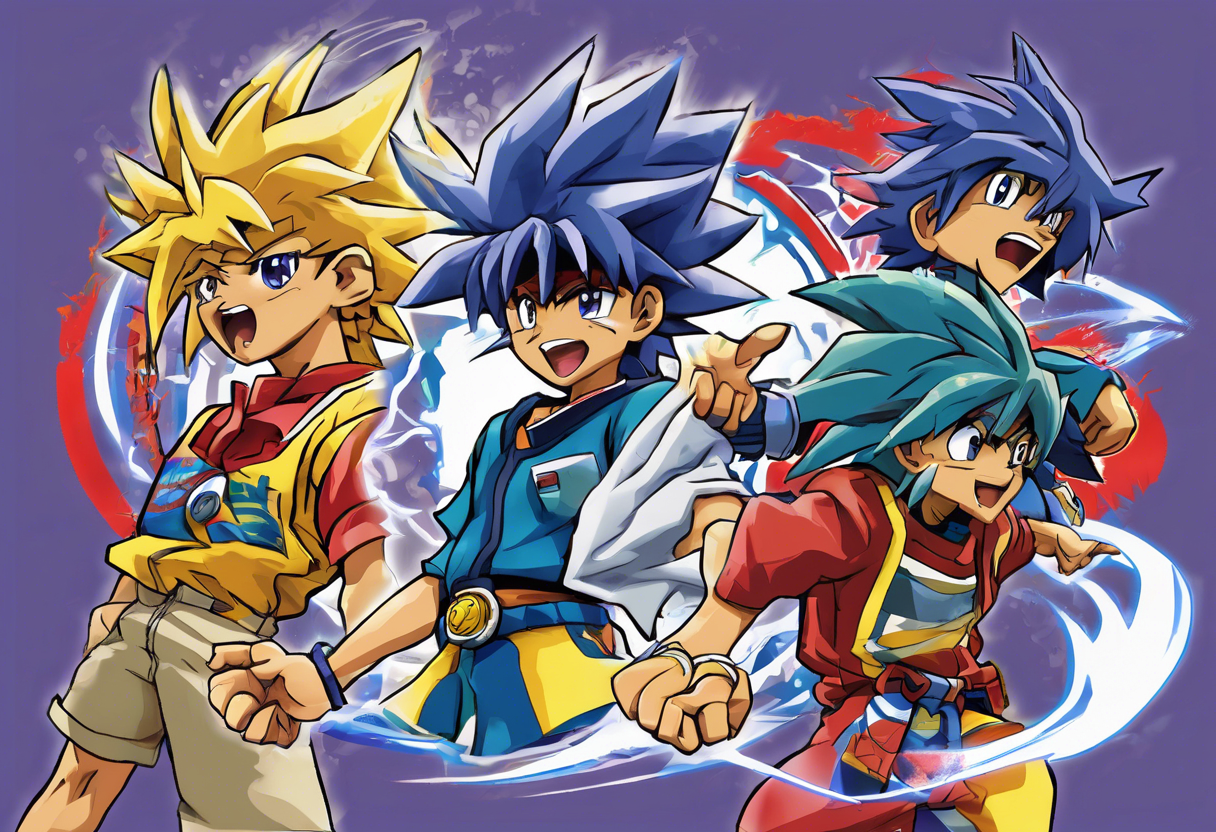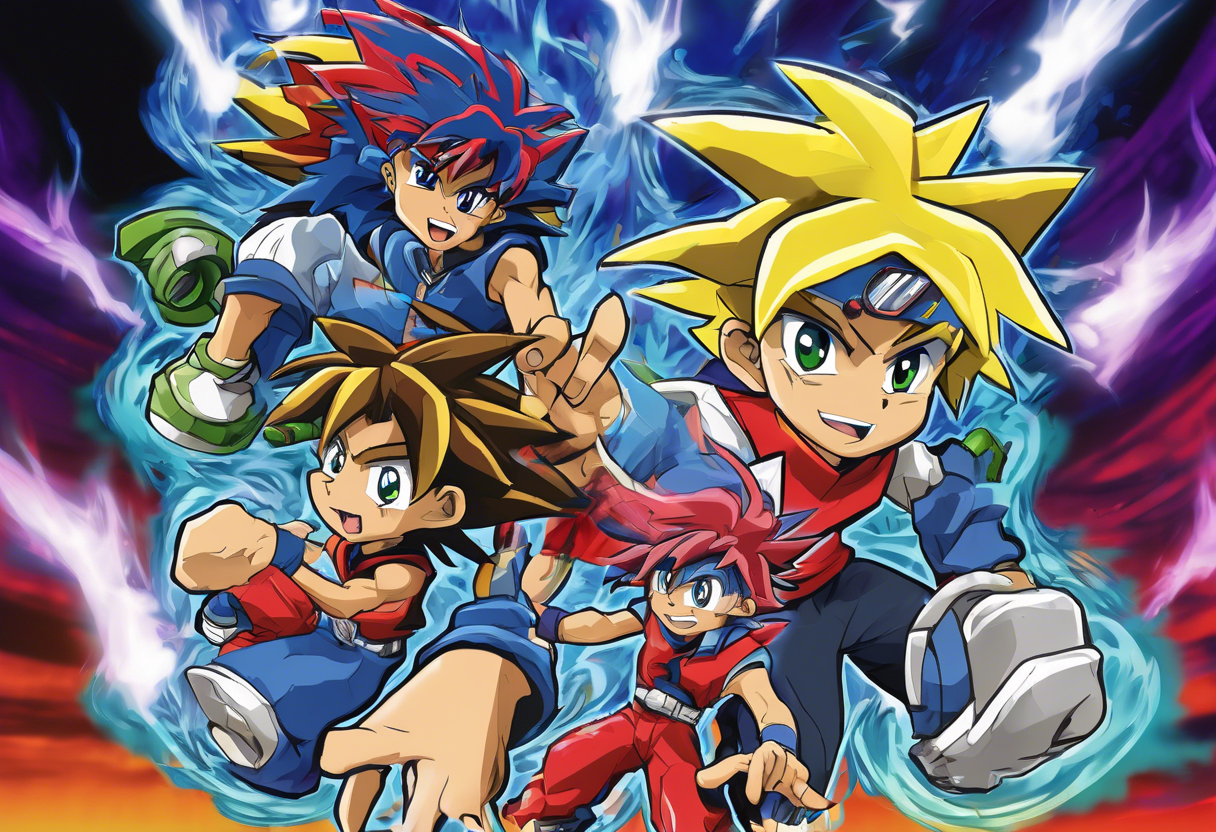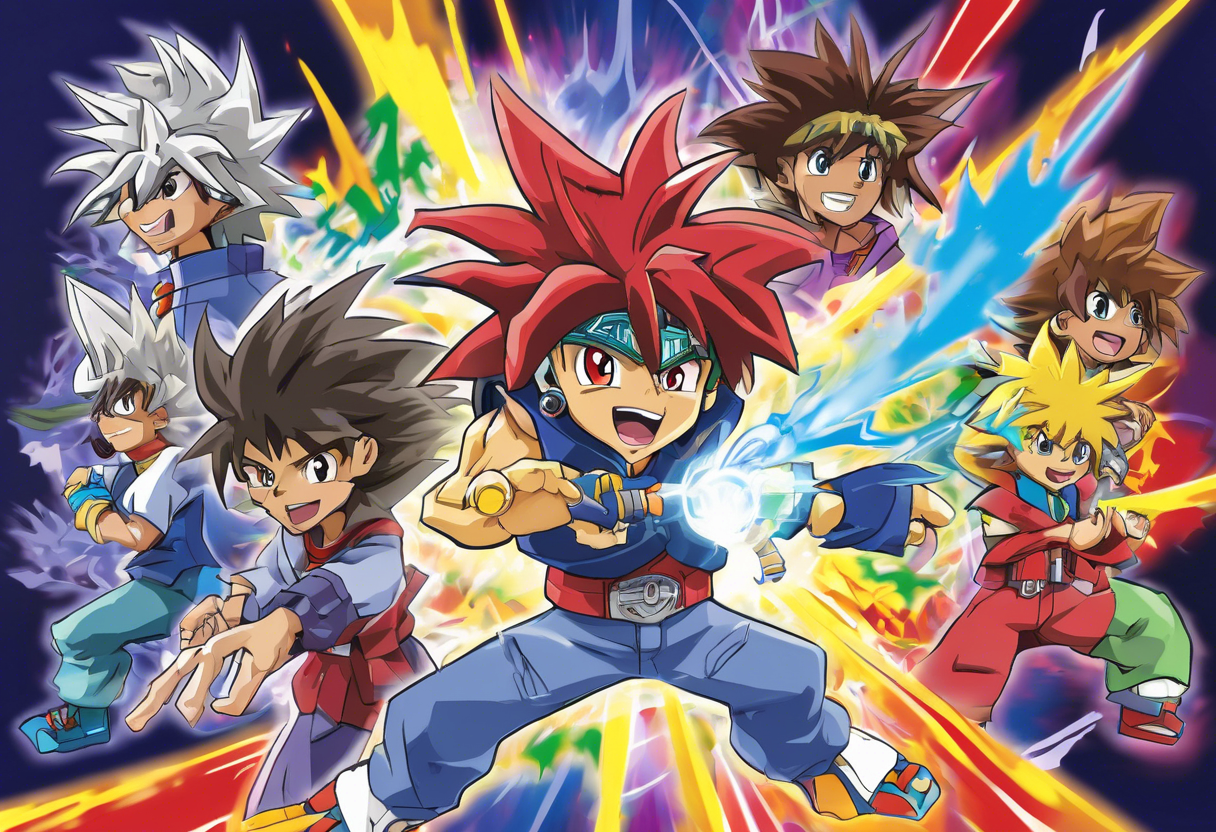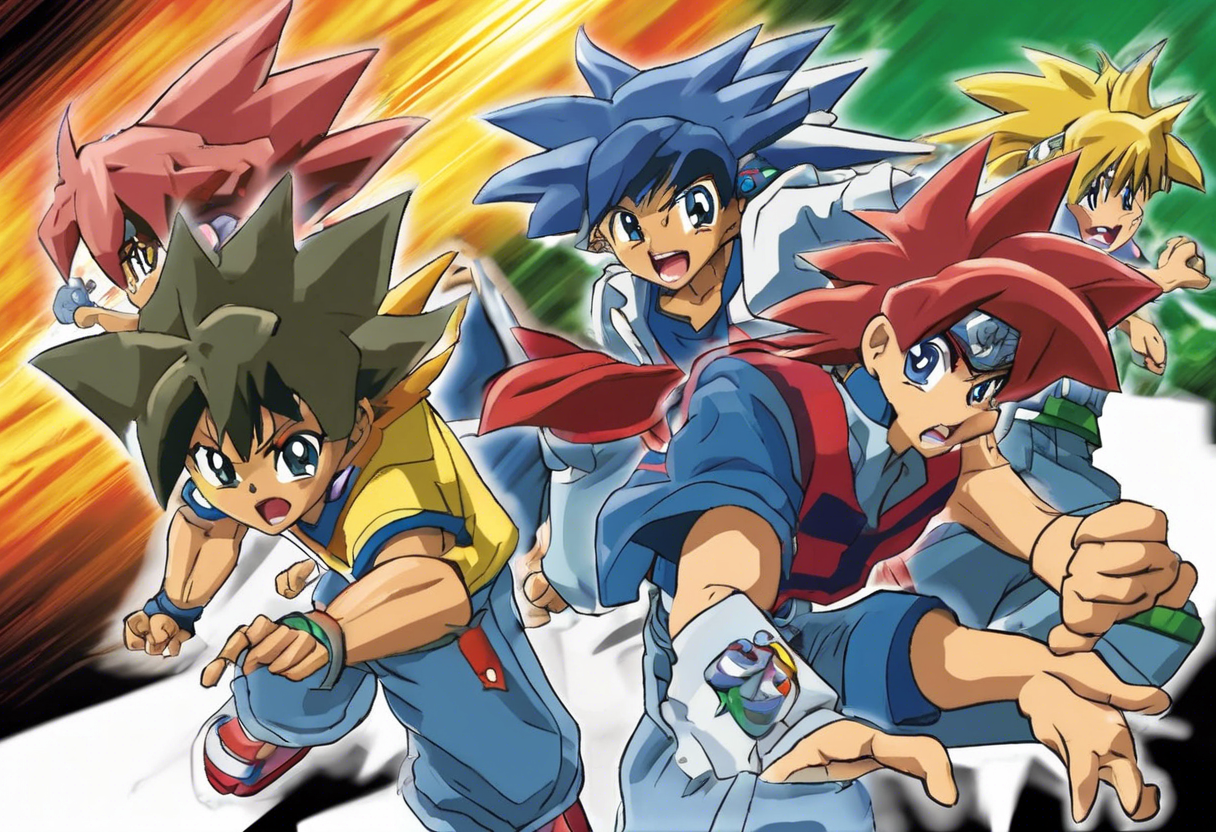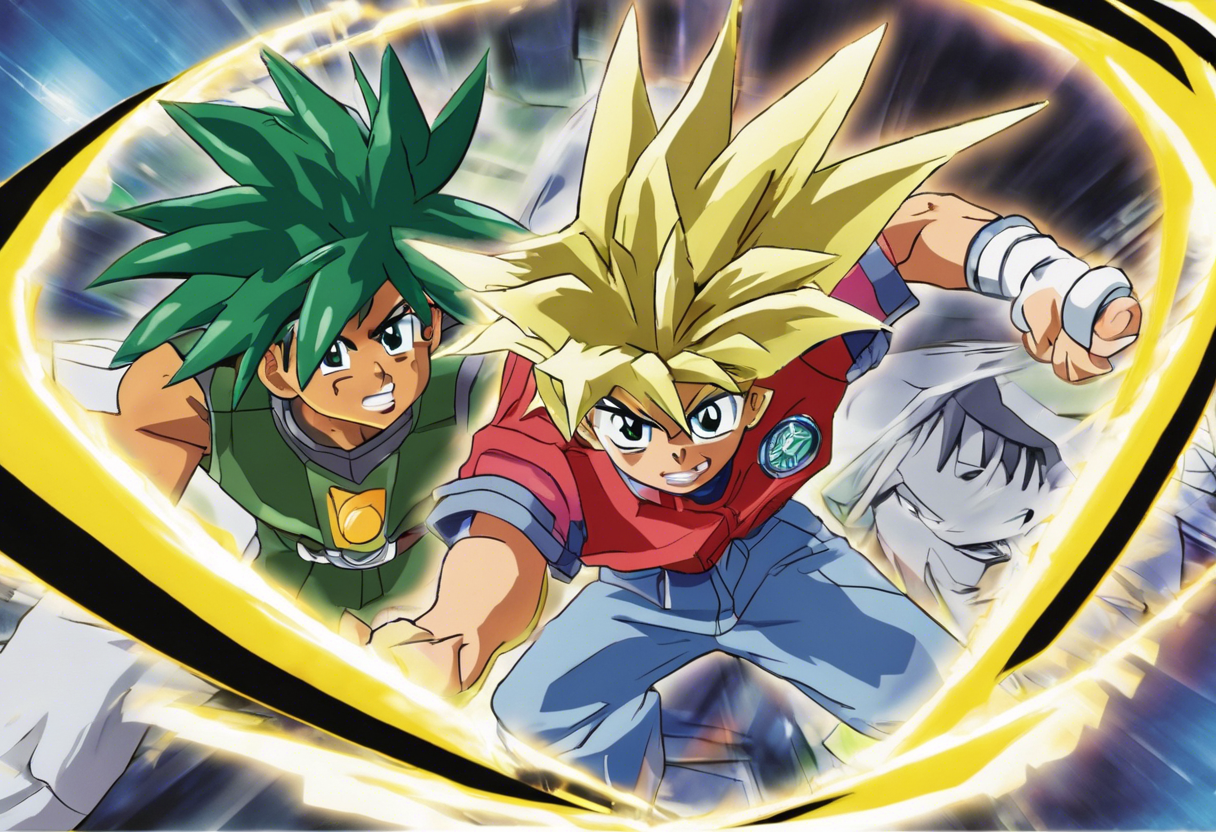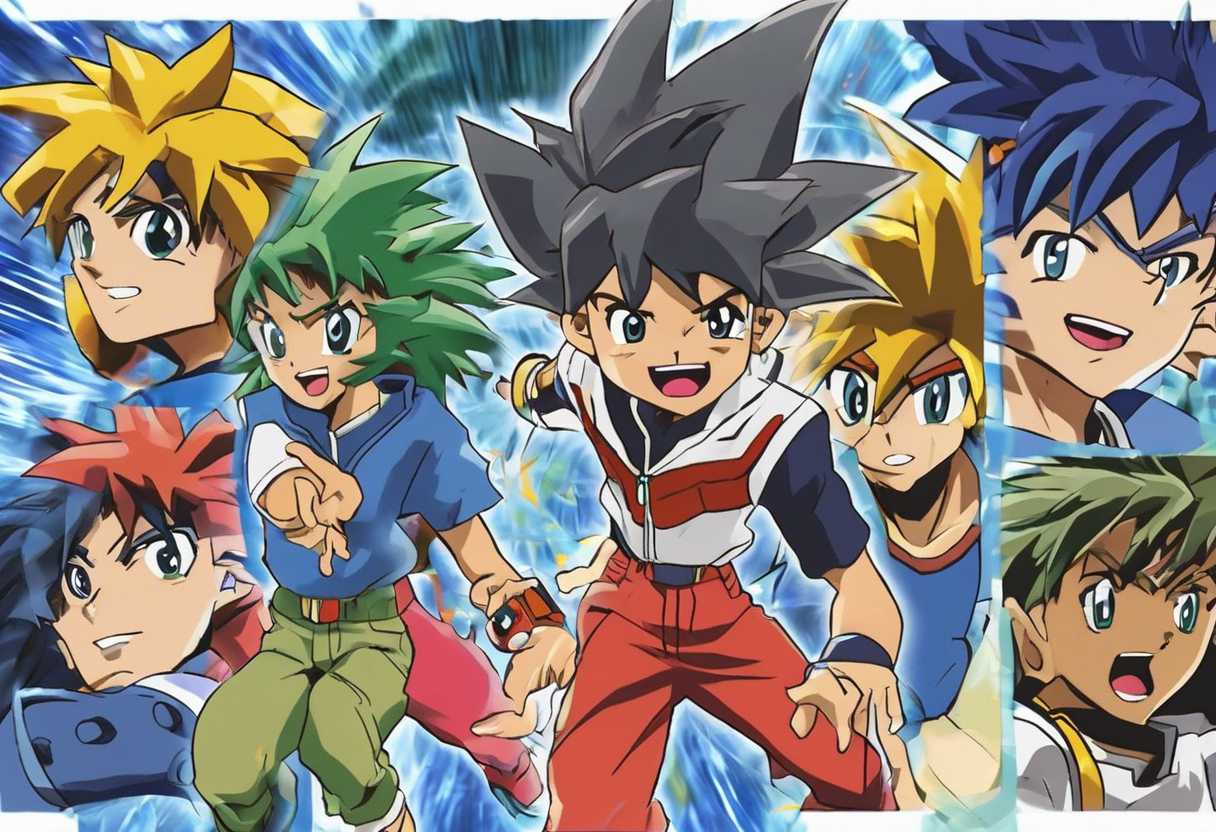Contents
Beyblade (2001) – Episode 19: The Beyblade Spirit
Introduction
"Beyblade," the 2001 Japanese anime series, is based on the manga of the same name by Takao Aoki. The series, also known as "Bakuten Shoot Beyblade" in Japan, premiered on TV Tokyo on January 8, 2001, and was later broadcast in other countries, including an English broadcast starting on July 6, 2002 [4][5].
Episode 19, titled "The Beyblade Spirit," is part of the first season, which consists of 51 episodes. The series was produced by Madhouse and directed by Yoshihiro Nagamori, with Toshihisa Arakawa serving as the series composer. This episode, like the rest of the series, combines elements of adventure, comedy, and drama, set against the backdrop of competitive Beyblading.
What sets "Beyblade" apart is its unique blend of action, friendship, and personal growth, all centered around the high-energy sport of Beyblading. The series has become iconic for its depiction of spinning tops as powerful tools in competitive battles, each imbued with the spirit of its user.
Plot Summary
In "The Beyblade Spirit," the focus shifts to the emotional and psychological aspects of the characters as they face new challenges and adversaries. The episode begins with Tyson Granger, the main protagonist, reflecting on his recent victories and the bond he shares with his teammates, Kai Hiwatari, Max Tate, and Ray Kon. The Bladebreakers, their team, have just returned from a successful tournament in Asia, where they solidified their reputation as top-tier Beybladers.
Upon their return, Tyson finds himself on the front page of the news, which inflates his ego and causes him to act like a rock star. This newfound fame upsets Kyojyu, the team’s mentor, who tries to keep Tyson grounded and focused on his training. Meanwhile, at a local playground, a young boy named Nicky is being bullied by another boy named Riley, who destroys Nicky’s Beyblade in a match.
Tyson, witnessing this, decides to help Nicky by rebuilding his Beyblade and teaching him how to defend himself. With the help of Max, Kyojyu, and Dizzi, they manage to rebuild Nicky’s blade and return to the playground for a rematch against Riley. The presence of the Bladebreakers backing Nicky intimidates Riley, and Nicky quickly defeats him, restoring his confidence.
This subplot highlights the themes of friendship and mentorship that are central to the series. Tyson’s actions demonstrate his commitment to helping others and his willingness to use his skills for more than just personal glory.
As the episode progresses, the main storyline delves into the psychological struggles of the characters. Kai, who has been struggling with his own identity and purpose, is approached by his grandfather, Voltaire, who reveals a dark secret about Kai’s past. Voltaire, the head of the Biovolt Corporation, has been experimenting with creating powerful Beyblades, including a dark version of Kai’s bit-beast, Dranzer.
Kai is tempted by the power of this new Beyblade, known as Black Dranzer, and begins to question his loyalty to the Bladebreakers. This internal conflict is a pivotal moment in the series, as it sets the stage for Kai’s temporary departure from the team and his alignment with the Neoborg, a rival team.
The central conflict of the episode revolves around the emotional turmoil Kai faces. His memories of using Dranzer as a child resurface, and he is drawn to the dark power of Black Dranzer. This temptation leads him to defeat the Allstars team and the White Tiger clan, stealing their bit-beasts in the process.
When the Bladebreakers confront Kai, he coldly gives Tyson his old Dranzer bit chip and walks away, leaving his friends stunned and heartbroken. This betrayal marks a significant narrative arc in the series, as it tests the bonds of friendship and loyalty among the characters.
The episode concludes with Max arriving just in time to help his friends, using an upgraded version of his Beyblade, Draciel, to counter Kai’s attacks. Tyson, however, is unable to match Kai’s strength and is forced to retreat. The episode ends on a cliffhanger, setting the stage for the next episode’s continuation of the conflict between Kai and the Bladebreakers.
Themes and Symbolism
"The Beyblade Spirit" delves into several key themes that are central to the series. One of the most prominent themes is the power of friendship and teamwork. Despite their differences, the Bladebreakers work together seamlessly, supporting each other through thick and thin. This is evident in how they rally around Nicky and help him regain his confidence.
Another significant theme is the struggle with identity and purpose. Kai’s internal conflict and his temptation by the dark power of Black Dranzer symbolize the universal struggle of finding one’s place in the world. This theme is further emphasized by Tyson’s initial ego inflation and his subsequent realization of the importance of staying grounded.
The episode also explores the theme of mentorship and guidance. Kyojyu’s role as a mentor is crucial in keeping Tyson focused, and Tyson’s actions in helping Nicky reflect his own growth as a leader and a friend.
Symbolically, the Beyblades themselves represent the inner spirits of their users. The bit-beasts, which are the spiritual entities within the Beyblades, embody the users’ strengths, weaknesses, and personalities. The dark version of Dranzer, Black Dranzer, symbolizes the darker aspects of Kai’s personality and his inner turmoil.
Cultural Impact
"The Beyblade Spirit" and the broader "Beyblade" series have had a significant cultural impact. The series was widely popular upon its release, not only in Japan but also globally. It spawned a successful toy line, with Beyblades becoming a staple in many children’s toy collections.
The series’ influence on popular culture is evident in its references in other media, such as video games and other anime series. The competitive spirit and the unique concept of Beyblading have inspired numerous adaptations and spin-offs.
Critical Reception
Upon its release, "Beyblade" received mixed reviews from critics but was generally well-received by audiences. Critics praised the series’ energy, character development, and the unique concept of Beyblading. However, some critics noted that the series could be formulaic at times, with repetitive battle sequences.
Audiences, particularly children and young teenagers, loved the series for its action-packed battles, relatable characters, and the inspiring themes of friendship and perseverance.
Legacy
"The Beyblade Spirit" and the "Beyblade" series as a whole have left a lasting legacy in the world of anime and beyond. The series continues to inspire new generations of fans, with its themes of friendship, teamwork, and personal growth remaining relevant.
The series has also influenced the development of other anime and manga, particularly those in the sports and action genres. The concept of Beyblading has become iconic, symbolizing the blend of technology, strategy, and personal spirit that defines competitive sports.
In conclusion, "The Beyblade Spirit" is a pivotal episode in the "Beyblade" series, offering a deep dive into the characters’ emotional and psychological struggles while maintaining the high-energy action and competitive spirit that defines the series.

